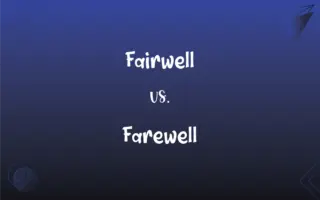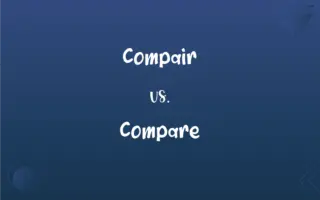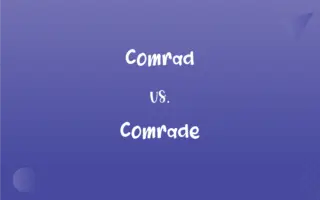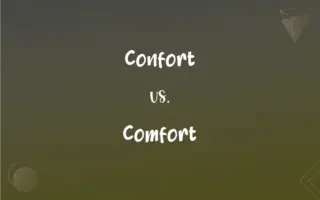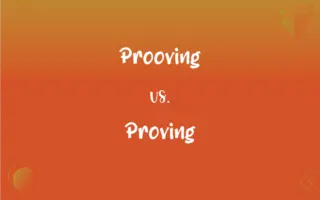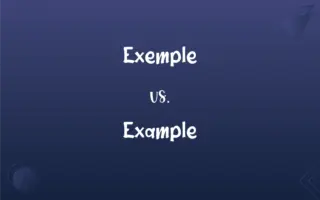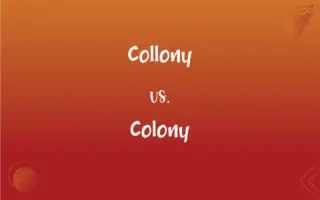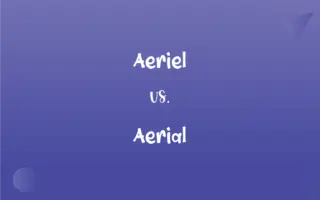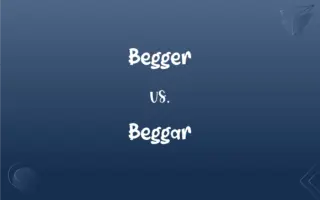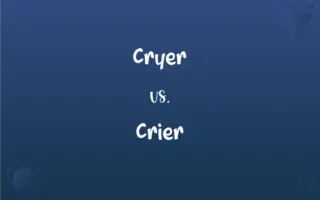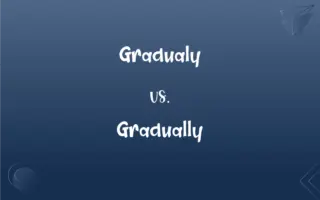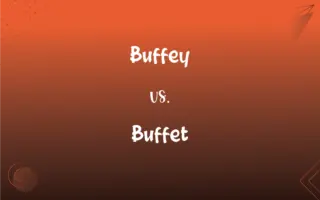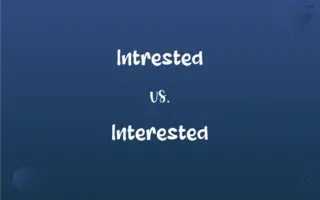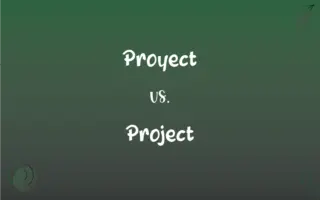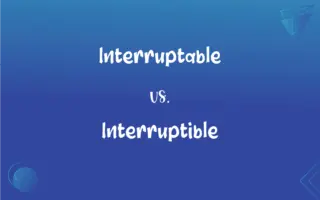Tryed vs. Tried: Mastering the Correct Spelling
Edited by Aimie Carlson || By Janet White || Updated on March 13, 2024
"Tryed" is the incorrect spelling. The correct past tense of "try" is "Tried," referring to the action of attempting or testing something.

Which is correct: Tryed or Tried
How to spell Tried?

Tryed is Incorrect

Tried is Correct
ADVERTISEMENT
Key Differences
Think of "Tried and true," a common phrase.
Notice that "y" often changes to "i" when adding "ed" in verbs.
Associate "Tried" with other verbs that follow the same pattern like "cried" or "plied."
Visualize a sentence: "I tried to remind you."
Remember "i before e" in "Tried."
ADVERTISEMENT
Correct usage of Tried
He tryed his best to win the race.
He tried his best to win the race.
My brother tryed to fix the computer by himself.
My brother tried to fix the computer by himself.
She has tryed calling her friend multiple times.
She has tried calling her friend multiple times.
I tryed to solve the puzzle before dinner.
I tried to solve the puzzle before dinner.
They have tryed to learn English for a year.
They have tried to learn English for a year.
Tried Definitions
Past tense of "try," meaning to attempt something.
I tried calling him several times.
Subjected to hardship or strain.
She is a tried and tested leader in crises.
Having undergone testing or examination.
These are tried and true methods.
Made an effort to do or achieve something.
He tried to impress her with his knowledge.
Brought to court and judged.
The tried criminal was sentenced to prison.
Past tense and past participle of try.
Thoroughly tested and proved to be good or trustworthy.
Made to undergo trials or distress. Often used in combination
A much-tried teacher.
Tested, hence, proven to be firm or reliable.
(law) Put on trial, taken before a lawcourt.
Simple past tense and past participle of try
Tested and proved useful or correct;
A tested method
Tested and proved to be reliable
Tried Sentences
He tried to finish his homework before going out to play.
They tried to climb the tallest tree in their backyard.
The dog tried to catch its tail, spinning in circles.
I tried to read a book above my reading level.
He tried to make a new friend at school.
She tried to learn how to ride a bike without training wheels.
She tried to paint a picture of her house.
I tried to swim across the pool without stopping.
I tried to save enough money to buy a new video game.
They tried to solve a difficult math problem together.
My friend tried to learn how to play the guitar.
They tried to build a fort out of blankets and chairs.
He tried to write a poem for his English class.
He tried to jump over a large puddle and stay dry.
They tried to watch the entire movie marathon without falling asleep.
I tried to stay awake during the long car ride.
She tried to memorize all the state capitals.
She tried to make a paper airplane that would fly far.
She tried to bake cookies without any help from her parents.
She tried to plant a garden with flowers and vegetables.
I tried to learn how to juggle three balls.
He tried to invent a new game to play with his friends.
They tried to organize their room by themselves.
FAQs
What is the pronunciation of Tried?
It's pronounced as /traɪd/.
Why is it called Tried?
It's called "Tried" because it's the past tense of the verb "try," indicating a past action of attempting or testing something.
Which preposition is used with Tried?
It depends on context, but "on" (as in "tried on clothes") or "to" (as in "tried to do") are common.
What is the root word of Tried?
The root word is "try."
Which vowel is used before Tried?
The vowel "i" is used before the ending "ed" in "Tried."
What is the singular form of Tried?
"Tried" itself is singular.
Which conjunction is used with Tried?
Any conjunction can be used, depending on context.
What is the plural form of Tried?
The word "Tried" does not have a plural form, as it's a verb tense.
Which article is used with Tried?
It depends on context, but typically none since "Tried" is often a verb.
What is the verb form of Tried?
"Tried" is the past tense form of the verb "try."
Is Tried an abstract noun?
No, "Tried" is not an abstract noun.
Is Tried a vowel or consonant?
"Tried" is a word composed of both vowels and consonants.
What part of speech is Tried?
"Tried" is primarily a verb but can also function as an adjective.
What is the second form of Tried?
The second form (past tense) of "try" is "tried."
Is the Tried term a metaphor?
No, "Tried" itself isn't a metaphor but can be used in metaphorical expressions.
What is the opposite of Tried?
The opposite could be "untried" or "untested."
Is Tried a countable noun?
"Tried" is not a noun, so it's not countable.
Is Tried a collective noun?
No, "Tried" is not a collective noun.
How many syllables are in Tried?
One syllable.
Which determiner is used with Tried?
It varies based on context, but "the" might be used when "Tried" functions as an adjective.
How is Tried used in a sentence?
"I tried the new recipe and everyone loved it."
Is Tried an adverb?
No, "Tried" is not an adverb.
Is Tried a negative or positive word?
"Tried" is neutral, but its connotation can vary based on context.
What is the first form of Tried?
The base form is "try."
Is Tried a noun or adjective?
"Tried" is primarily a verb but can also function as an adjective.
Is the word Tried imperative?
No, "Tried" is in the past tense form, not imperative.
How do we divide Tried into syllables?
Tried.
What is a stressed syllable in Tried?
The entire word "Tried" is stressed as it's monosyllabic.
What is another term for Tried?
Another term might be "attempted."
What is the third form of Tried?
The third form (past participle) of "try" is "tried."
About Author
Written by
Janet WhiteJanet White has been an esteemed writer and blogger for Difference Wiki. Holding a Master's degree in Science and Medical Journalism from the prestigious Boston University, she has consistently demonstrated her expertise and passion for her field. When she's not immersed in her work, Janet relishes her time exercising, delving into a good book, and cherishing moments with friends and family.
Edited by
Aimie CarlsonAimie Carlson, holding a master's degree in English literature, is a fervent English language enthusiast. She lends her writing talents to Difference Wiki, a prominent website that specializes in comparisons, offering readers insightful analyses that both captivate and inform.


